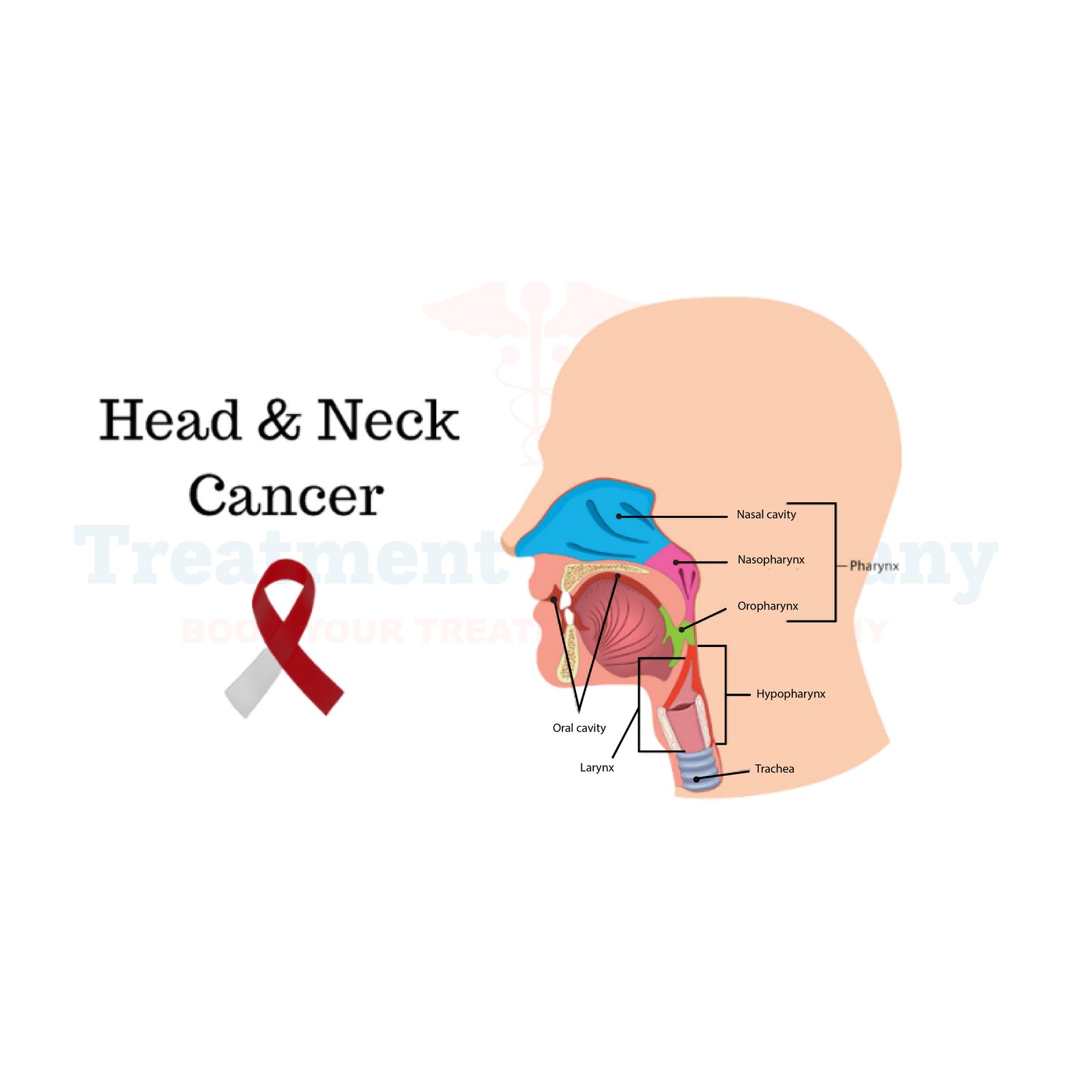Head and neck cancer encompasses various malignancies that are initiated in the oral cavity, throat, larynx, salivary glands, nasal cavity, or paranasal sinuses. These cancers result from squamous cell carcinoma more frequently than any other cancer forming in the mucous membranes of these regions.
Germany has turned out to be a hub for health in terms of advanced care in medicine, innovative technologies, and very specialized treatment strategies for head and neck cancers. This report takes into account the reasons, signs, diagnosis, and the latest treatment methods available in Germany.
Head and neck cancer is a group of cancers developing in different parts of the head and neck. The main types include:
Causes and Risk Factors of Head and Neck Cancer
Most head and neck cancers start as abnormal cells that multiply uncontrollably and form a tumor. The following are some risk factors for these cancers:
Head and Neck Cancer Symptoms
Depends upon where it occurs. But those common symptoms are:
Head and Neck Cancer Diagnosis in Germany
Germany’s hospitals use a blend of sophisticated diagnostic equipment to help detect and stage cancer properly.
Initial Evaluation
Diagnostic Tests
Cancer Staging
The TNM classification assesses the size of the tumor, involvement of the lymph nodes, and the status of metastasis and assigns a stage between I and IV. Stage I and II cancers have a positive response to treatment.
Advanced Treatment Options in Germany
Germany wins laurels by taking up a multidisciplinary approach towards the treatment of head and neck cancers, with total eradication of the disease without affecting functionality and appearance.
Surgery
Surgery remains the backbone of regional management for localized tumors. Surgeonsaim to remove the majority of the tumor, along with some of its surrounding healthy tissue. Some of the newest developments include:
Radiation Therapy
The German specialists use external beam radiation therapy to concentrate the cancerous cells while doing their best not to destroy the normal tissues. Radiation therapy can be used together with other treatments, like surgery and chemotherapy.
Chemotherapy
Chemotherapy is usually administered to patients who are advanced or metastatic. Drugs assist in killing the cells causing cancer or minimize their size and volume.
Targeted Therapy
Targeted drugs, such as Cetuximab and Larotrectinib, work specifically to disable specific pathways that cause cancer. These new medicines offer hope to patients who have reached the late stages of their disease.
Immunotherapy
These treatments, such as pembrolizumab and nivolumab, aid in the identification and killing of cancer cells. These are especially useful with recurrent or metastatic forms of the disease.
Palliative Care
In the late stages, palliative care is embraced through symptom management, including pain, difficulty swallowing, and hoarseness, among others, so the patient can live a much easier life.
Prevention of Head and Neck Cancer
The only method to reduce the incidence rates of the disease is through prevention. Major approaches include:
Preventive Measures for Head and Neck Cancer
Avoid as much as possible contact with established and suspected carcinogens, such as asbestos and industrial chemicals.
Prognosis and Survival Rates
Why Choose Germany for Head and Neck Cancer Treatment?
It possesses some of the world's best advanced medical technology, innovative therapies, and expert care teams that make Germany a global hub for head and neck cancer treatment. It is also known for precision diagnosis by advanced imaging and detailed biopsies.
In German facilities, cancer is detected with precision and staged properly. Treatment options go from minimally invasive surgeries to targeted therapies such as Cetuximab and groundbreaking immunotherapies like Pembrolizumab.
Germany’s clinics go for a patient care approach and give reconstructive surgery, speech therapy, and palliative care in an endeavor to help patients achieve recovery and a healthier life. Excellence and personalized plans for each patient make Germany deliver outcomes no one else can.
Frequently Asked Questions
What are cancers that fall under head and neck cancer?
These include cancers of the mouth, pharynx, larynx, salivary glands, and nasal cavity.
Are head and neck cancers curable?
Yes, many are curable by early treatment with surgery and radiation therapy.
How is HPV related to cancer?
HPV is a sexually transmitted infection causing genetic changes in cells that lead to the development of oropharyngeal cancer.
What is biopsy?
Take a small piece of tissue for examination" under a microscope by a pathologist to confirm cancerous cells
Which of the following behaviors helps keep it from coming back?
The recurrence of cancer drops significantly if one avoids smoking and alcohol and improves oral hygiene.
👉 Contact us for further information and receive a complimentary consultation.


.webp)
 (1).webp)

.webp)
 (1).webp)


.webp)
 (1).webp)

.webp)
 (1).webp)
